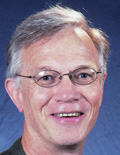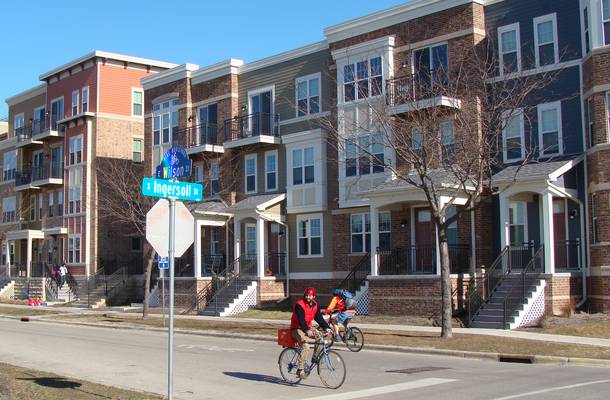Berke presents sustainable cities lecture Jan. 20 at Wright Gallery
 Philip Berke
Philip Berke
Philip Berke ‘81, an outstanding alumnus of Texas A&M’s College of Architecture and one of the nation’s top land use planning scholars, presented “Sustainable Cities: Demographic Trends, Impacts and Future Plans” Jan. 20 in the Wright Gallery.
He is professor of city and regional planning at the University of North Carolina-Chapel Hill, director of its Center for Sustainable Community Design and the deputy director of its Institute for the Environment.
His research focuses on developing a deeper understanding of the connections between human settlements and the natural environment and exploring the causes of land use decisions and their consequences on the environmental, social, and economic systems of human settlements. His ultimate goal is to seek solutions to complex urban development problems that enhance the transition to sustainable communities.
Berke, said David Godschalk, professor emeritus of city and regional planning at UNC, is an internationally recognized land use and environmental planner whose research and publications have made major contributions in natural hazard mitigation, urban land use planning, growth management, sustainable development and environmental planning and policy.
He is also a collaborative research scholar of the International Global Change Institute in New Zealand, presenting research findings at seminars throughout the world.
As a faculty member at Texas A&M, Berke helped found the Hazard Reduction and Recovery Center in 1988, writing and stewarding the center’s proposal through its authorization process and serving as its first director on an interim basis.
Walter Peacock, the center’s director, said Berke helped establish the HRRC as one of the world’s leading disaster centers.
“His foresight and persistence in creating the HRRC represent an enormous contribution to the College of Architecture and Texas A&M University, enhancing its stature in the research community both nationally and internationally,” said Peacock.
Berke earned a Ph.D. in Urban and Regional Science in 1981 at Texas A&M.
Previous post
Tags
- class acts
- events
- housing & urban development
- land development
- landscape architecture & urban planning
- lectures
- sustainability
Related Posts

Noted South African developer to lecture on de-urbanization

College hosts international LAUP conference

Lecture highlights tactical urbanism uses, strategies
College names six outstanding alumni

Affordable housing advocate to lecture
Follow Us
Facebook Twitter Vimeo Youtube Flickr RSS
Recent Posts

Planning prof heads study of disaster housing aid

A message from the dean

Former student remembered as expert planner

Leading educator named new head of Architecture Dept.





_thumbnail_small.png)
